Ask AI on The Internet
Question: Section C: Short Essay (20) “The integration of ICTs in teaching and learning plays a vital role in learners’ success and prosperity in life (Ndlovu & Donavan, 2012). The use of ICTs in teaching and learning not only enhances learning but also prepares learners to work in an economy that has rich technological challenges.” Research on emerging technologies and write an essay of no more than 500 words describing the types of challenges that learners will face while working in an economy that has rich technological advancement. Keep your essay to South African context. Introduction (3) Body (12) At least 6 challenges are described. Conclusion (3) Language and Grammar (2)
Over the past few decades, the integration of Information and Communication Technologies (ICTs) in teaching and learning has significantly reshaped the educational landscape. As per Ndlovu & Donavan (2012), ICTs not only enhance learning but also equip learners with the necessary skills to navigate an increasingly digital economy. However, South Africa's unique socio-economic environment presents specific challenges for learners entering a technologically advanced economy. This essay explores six such challenges, emphasizing the South African context. **Digital Divide** One of the most pressing issues South African learners will encounter is the digital divide. While urban areas have relatively better access to technology, rural and underprivileged areas often lag due to insufficient infrastructure and high costs. This gap results in unequal access to digital resources, severely hampering the ability of many learners to acquire essential technological skills. **Misinformation and Digital Literacy** The surge in technological advancement means more information is available at the click of a button. However, the increased volume of information also means that misinformation and "fake news" proliferate more easily. South African learners need to develop strong digital literacy skills to critically evaluate sources and discern factual information from falsehoods. Without such skills, they are at risk of being misled, which can affect both their personal and professional lives. **Cybersecurity Threats** As technology becomes more integrated into daily life, cybersecurity threats also rise. South African learners must be prepared to face issues like hacking, identity theft, and data breaches. Knowledge of cybersecurity measures and the ability to implement them is crucial for protecting personal and organizational data. However, many educational institutions lack resources to comprehensively teach these skills, leaving learners vulnerable. **Automation and Job Displacement** Technological advancement often leads to automation, which can result in job displacement. In South Africa's already volatile job market, this could exacerbate unemployment rates. Learners must, therefore, acquire not only technical skills but also soft skills such as problem-solving, critical thinking, and adaptability to thrive in an economy where many traditional jobs may become obsolete. **Access to Continuous Learning** In a rapidly evolving technological landscape, continuous learning is essential. However, opportunities for ongoing professional development are often limited, especially in remote or economically disadvantaged communities. South African learners may find it particularly challenging to keep up with technological advancements without access to quality, continuous education and training. **Cultural and Language Barriers** South Africa is a culturally diverse country with 11 official languages. This diversity can pose a barrier to the effective implementation and usage of ICTs. Many educational resources and technologies are primarily available in English, creating an additional layer of difficulty for non-English speakers. Ensuring that technology is inclusive and accessible to all linguistic and cultural groups is a significant challenge. In conclusion, while the integration of ICTs in education offers substantial benefits for South African learners, several challenges must be addressed to ensure that these benefits are equitably distributed. Issues like the digital divide, misinformation, cybersecurity threats, job displacement due to automation, limited access to continuous learning, and cultural and language barriers need targeted interventions. Addressing these challenges will require collective efforts from policymakers, educators, and communities to prepare learners adequately for a technologically advanced economy. Only through such concerted efforts can South African learners truly prosper in an increasingly digital world.
Think your answer is better than the AI's? Post it below.
Other Most Relevant Posts:
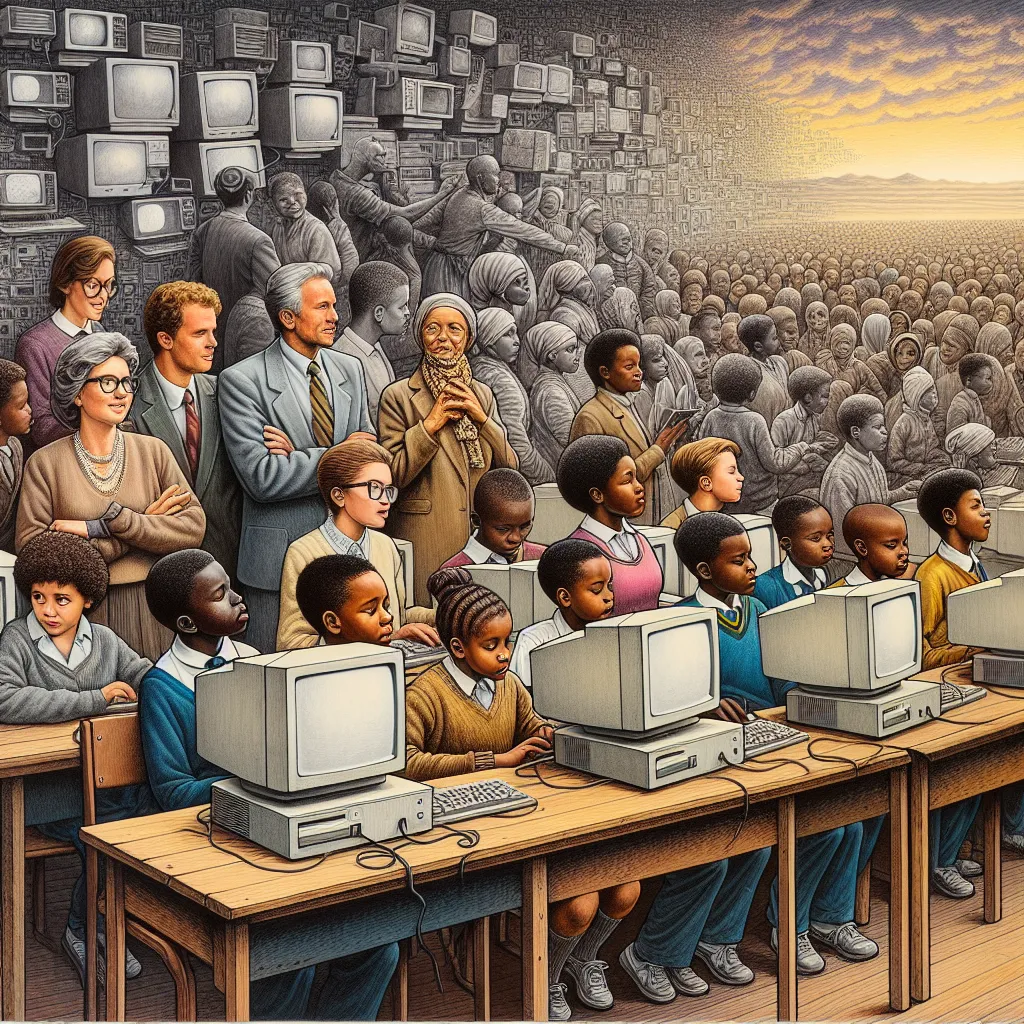 Challenges of ICT Integration in South African Schools: Infrastructure, Training, and Resource Allocation
Challenges of ICT Integration in South African Schools: Infrastructure, Training, and Resource Allocation
Question Tags
If you want your question answered by an AI, click here.
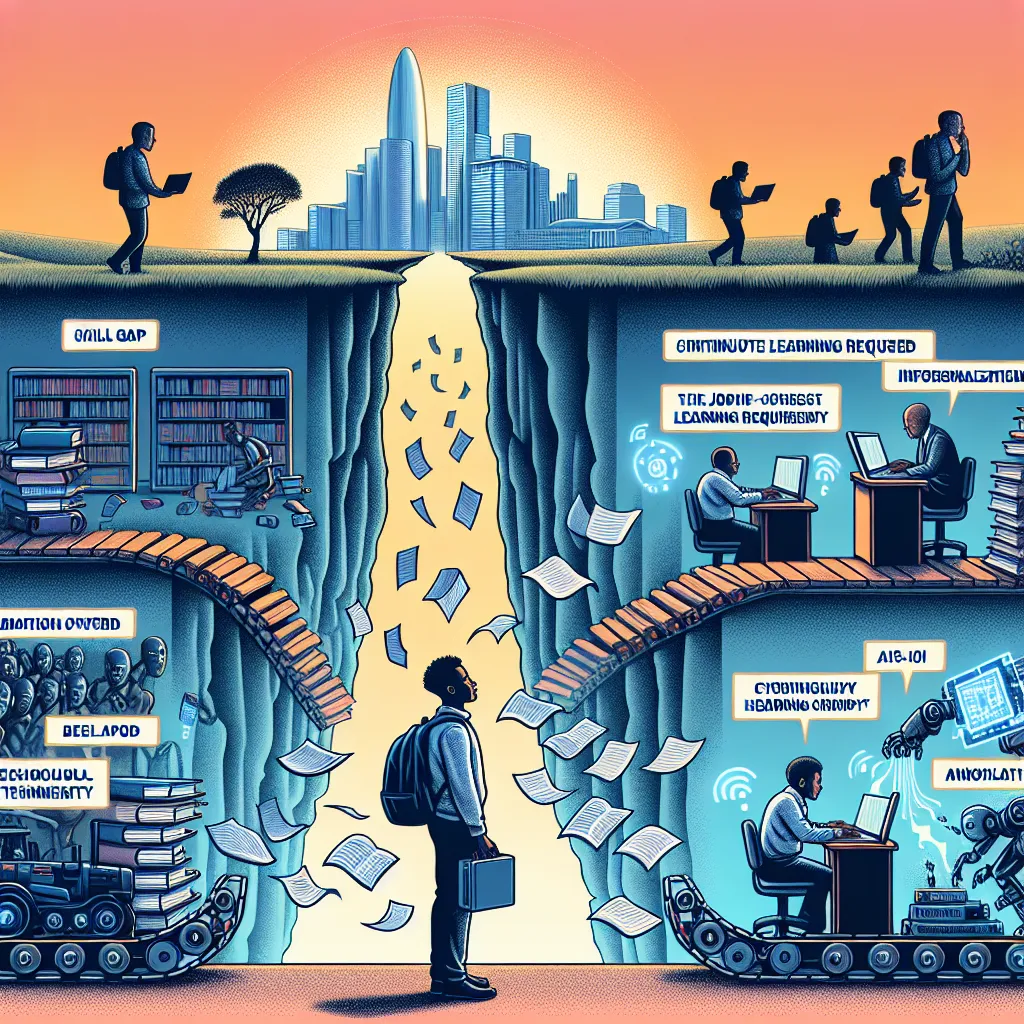

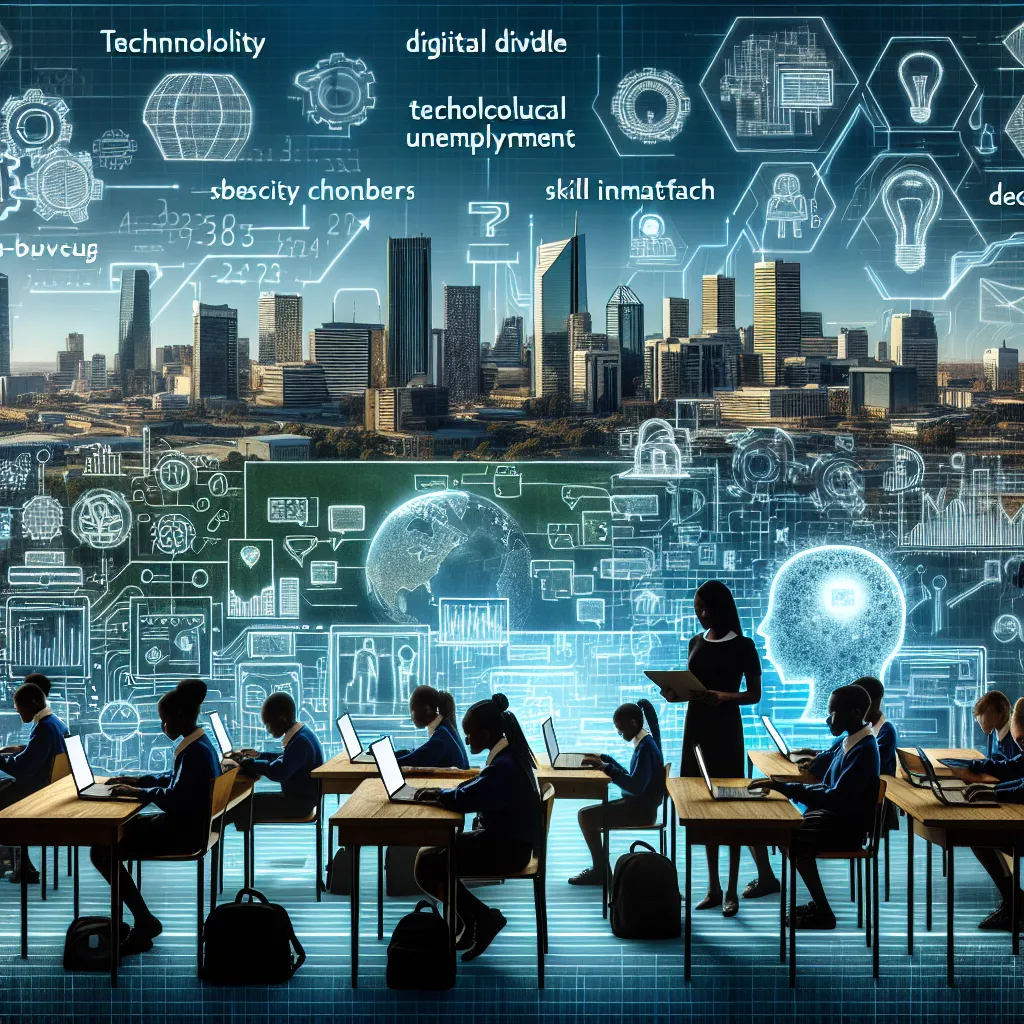
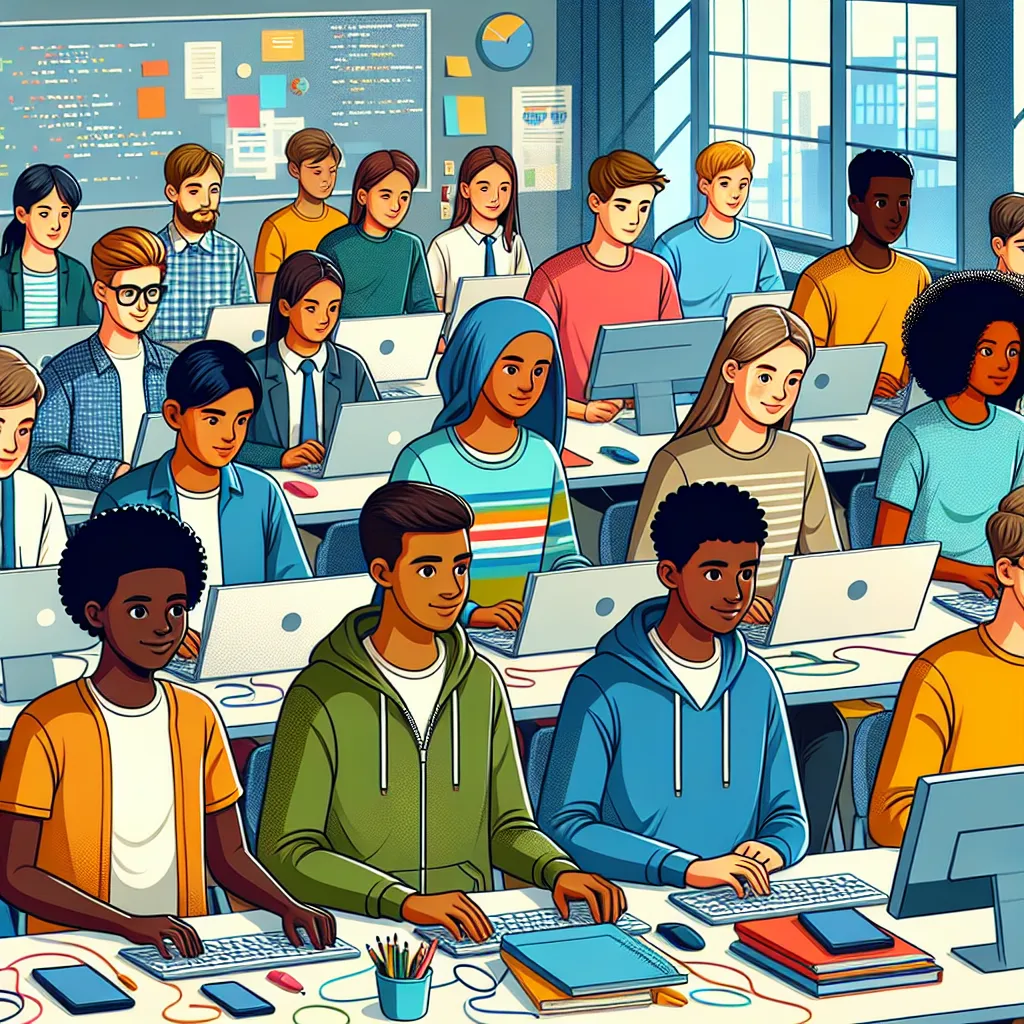

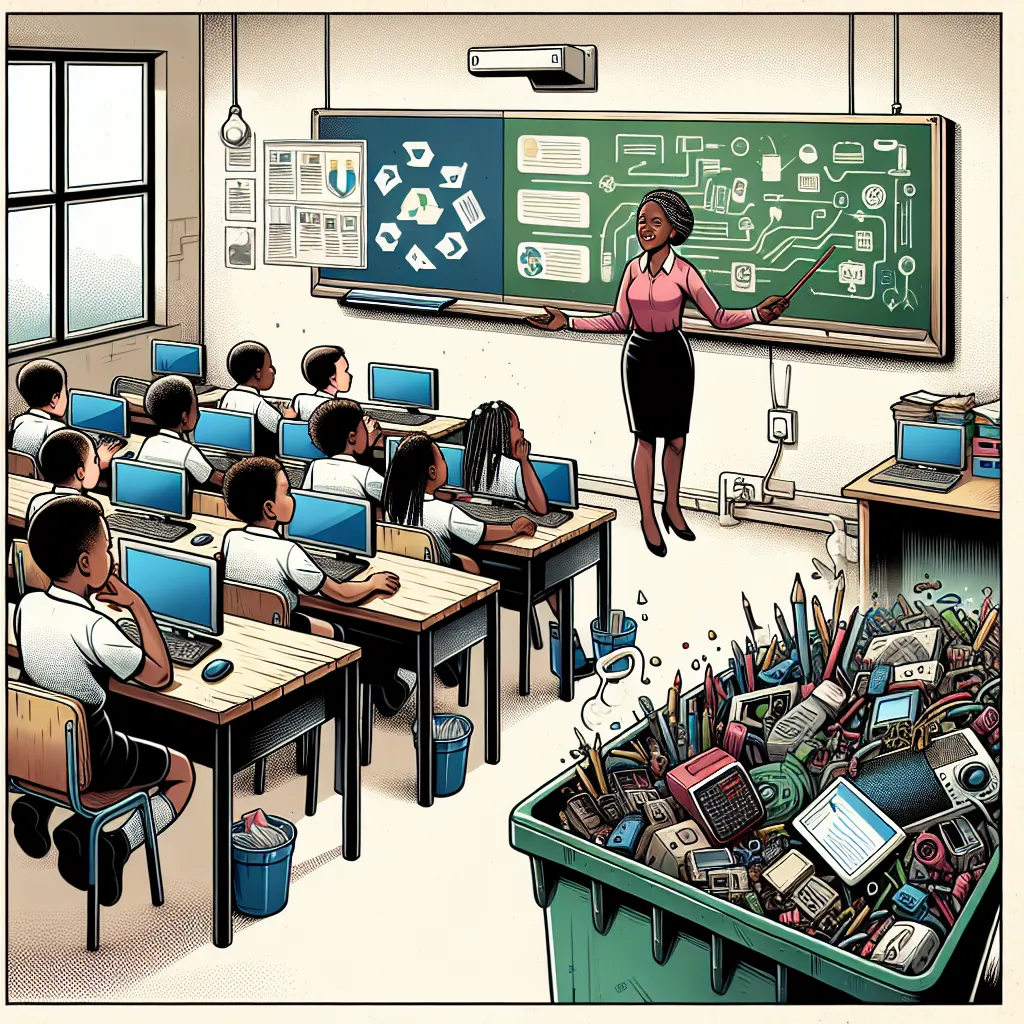
Post your own comment: